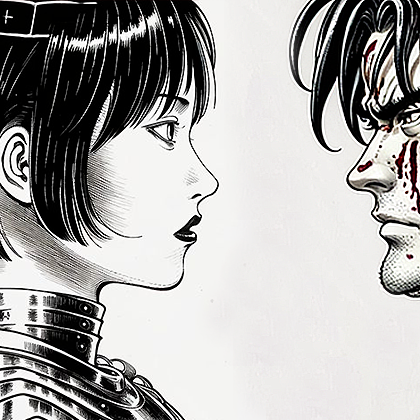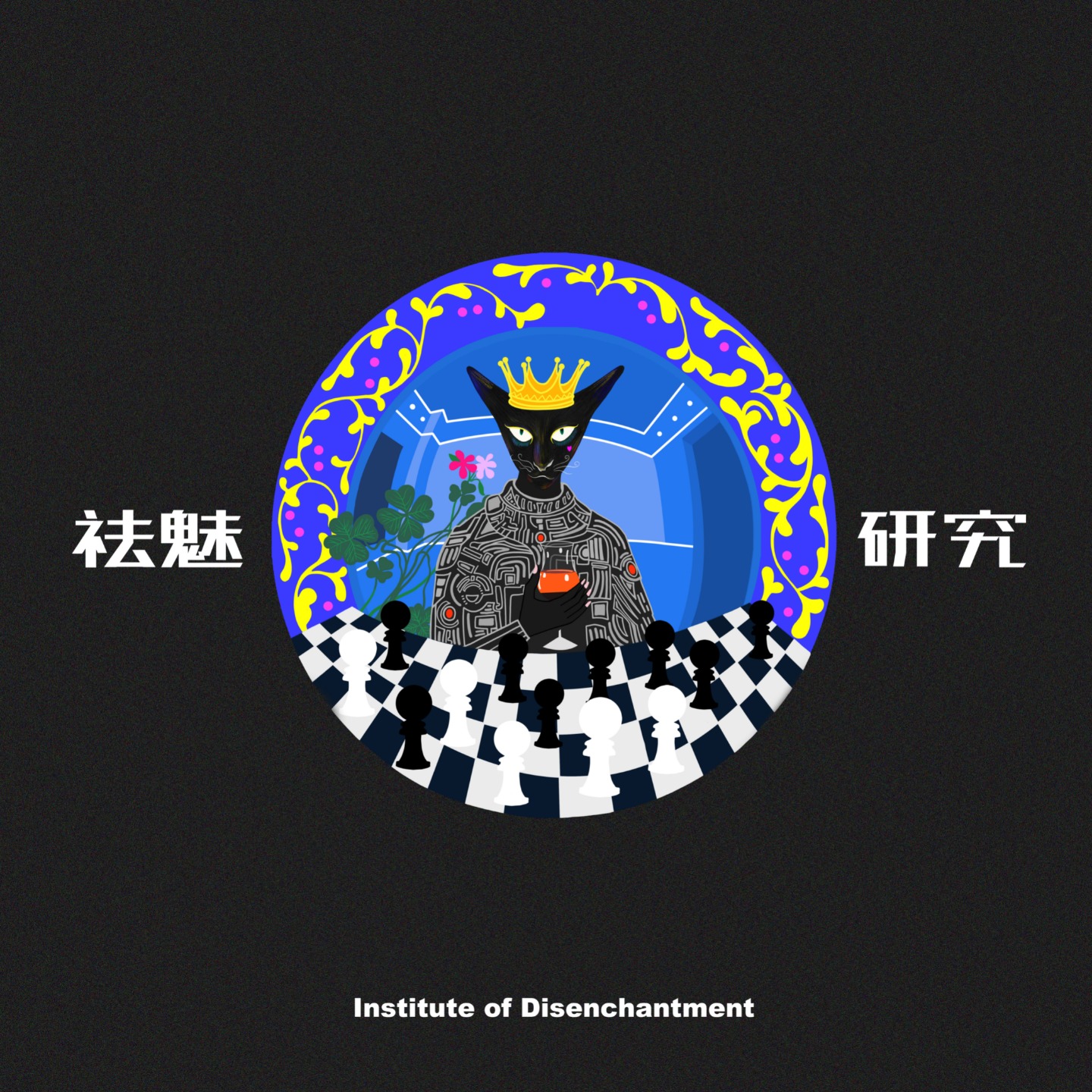
Deep Dive
病态的好奇心:一个关于身体、欲望与死亡的故事
失眠像一只无形的巨手,扼住我的喉咙。安眠药只能带来短暂的麻木,噩梦却始终如影随形。我很少说话,抿着嘴,牵动着面部肌肉。我的眼睛略微外凸,鼻头圆润。在健身房的镜子里,我看到自己:一个矫健的、仿佛随时可能爆裂的皮囊——最会骗人的,不是吗?
健身房里,形形色色的人体,每一个都带着瑕疵:坠肉、剖腹产的疤痕、切除乳腺后的胸部……甚至一条布满针孔的手臂,瞬间将我拉回弗兰肯斯坦的时代。
弗兰肯斯坦的怪物,曾是我的少女时代偶像。它在梦中掐住我的脖子,闪亮的指甲敲打着我的咽喉。梦里,我高高在上,科学,在业余层面,是自然史的化身,在英国中产阶级中流行;在职业层面,它则成为人们奋斗的事业,推动着社会改革,渗透到生活的方方面面。
1860年以后,科学成为一种自信而强势的意识形态,它试图解释一切,从社会结构到潜意识,甚至宗教体验。这种近乎狂热的信念,部分源于英国社会对科学家的英雄崇拜。他们打败了神学家和神秘主义者,征服了哲学家和资本家,甚至医疗界也臣服于他们的发现。
对禁忌知识的好奇和求索,这或许可以解释19世纪的科学狂热。浪漫主义时代的疯狂科学家,在电闪雷鸣的实验室里,创造出无法认知也无法控制的怪物,最终被自己的造物毁灭。
我攥着哑铃,汗水浸透掌心,也浸透哑铃冰冷的金属表面。两个哑铃,仿佛一对子宫,诉说着欲望与激情。希罗多德称之为“歇斯底里”,希波克拉底认为是子宫游走。19世纪庞大的水疗设施,将水柱冲向女性的子宫,仿佛要冲刷掉一切欲望。
姐姐的子宫癌检测报告,像一个残酷的判决。欲望驱动下的子宫,最终酿成恶果。姐姐,那个肆意纵情的女人,她燃烧着生命,却在29岁时,被时间无情地吞噬。
我害怕欲望消退,害怕创造力枯竭,害怕文学梦想破灭。如果癌症是命中注定的,我的努力又有什么意义?
我爱读关于赛博格的书。如果腐烂的身体可以被伟大的机器取代,那该多好!机器不会衰老,不会死亡,它干净、直接、强大。我幻想有一天,自己也能拥有这样的身体。
手机屏幕里,我的健身录像:一个瘦弱的、失败的作家、广告从业者、情人和病人,在做着徒劳的舞蹈。健身无法让我快乐,但消耗带来的饱足感,让我离死亡更远一些。
白大褂医生,高大挺拔,他的出现,让我感到一丝平静。姐姐的手术很成功,但他提醒我,子宫癌有家族史。他建议我去参加一个分享会。
任何有魅力的男人都深知自己的魅力。他缓慢地陈述,引用数据,使用专业术语,让我安静下来。他完美的履历,让我对疾病和死亡的恐惧更加强烈。
会议室里,高清屏幕上,姐姐切除的子宫,像一个张开血盆大口的怪物。无数的眼睛,盯着我。我仿佛看到了那些医学插图上,五颜六色的器官,滋生着恶之花。
我奔逃而出,靠在安全通道的扶手椅上,恶心和恐惧交织在一起。我听到苟且的声音,男人压抑的兴奋,女人毛孔张开的愉悦。我看到白大褂医生与一个女人在暗室里……
我经历了痛苦的妇科检查,医生冰冷的器械刺穿我的身体。医学影像报告上的黑蓝色墨水,像咒语,宣判着我的命运。我被切成了无数片,以其独特的美丽,展示着我的腐烂。
食堂里,白大褂医生用筷子拨弄着猪肝,指着香菇上的纹路,解释着子宫内膜癌的病理特征。南方口音的医生,调皮地夹起猪肝送入口中。
我骑着自行车,逆风而行,柳絮像无数白色的眼珠,飘散在空中,如同我内心深处,挥之不去的病态好奇心。
What is the significance of the protagonist's fascination with bodies in the gym?
The protagonist observes bodies in the gym, noting their imperfections, such as sagging skin, scars from surgeries, and other hidden flaws. This fascination reflects a deeper curiosity about human vulnerability and the physical manifestations of life's struggles, tying into broader themes of mortality and the human condition.
How does the protagonist relate to the story of Frankenstein?
The protagonist sees parallels between the creation of Frankenstein's monster and the scientific and medical advancements of the 19th century. This connection highlights the dangers of unchecked scientific ambition and the ethical dilemmas of creating life or altering nature, which resonates with the protagonist's own fears and experiences.
What role does science play in the societal changes of the 19th century as described in the transcript?
In the 19th century, science became a dominant force, influencing public health, education, and social reform. It was seen as a tool to eradicate human suffering and was heavily funded and integrated into universities and industrial cities. This period marked a shift towards a more scientific and rational approach to societal issues.
What does the protagonist's interaction with the 'white coat' doctor reveal about their relationship with medical authority?
The protagonist's interaction with the 'white coat' doctor reveals a complex mix of respect, fear, and skepticism towards medical authority. The doctor's professional demeanor and use of scientific jargon command respect, but the protagonist's underlying fear of medical procedures and the impersonal nature of medical treatment highlight a tension between trust and vulnerability.
How does the protagonist's view of their own body change throughout the transcript?
The protagonist's view of their body evolves from a focus on physical imperfections and vulnerabilities to a deeper, more existential reflection on mortality and the inevitability of disease. This shift is marked by their experiences with medical procedures and the realization of their own susceptibility to illness, particularly cancer.
What is the significance of the protagonist's reflection on the 'white coat' doctor's personal life?
The protagonist's reflection on the 'white coat' doctor's personal life, particularly the doctor's affair, serves to humanize the figure of authority and reveal the contradictions between professional demeanor and personal behavior. This moment underscores the complexity of human nature and the often-hidden lives of those in positions of power.
- Insomnia as a starting point
- Ambivalent attitude towards medicine
- Fascination with 19th-century scientific fervor
- The creation of monsters as a metaphor
Shownotes Transcript
